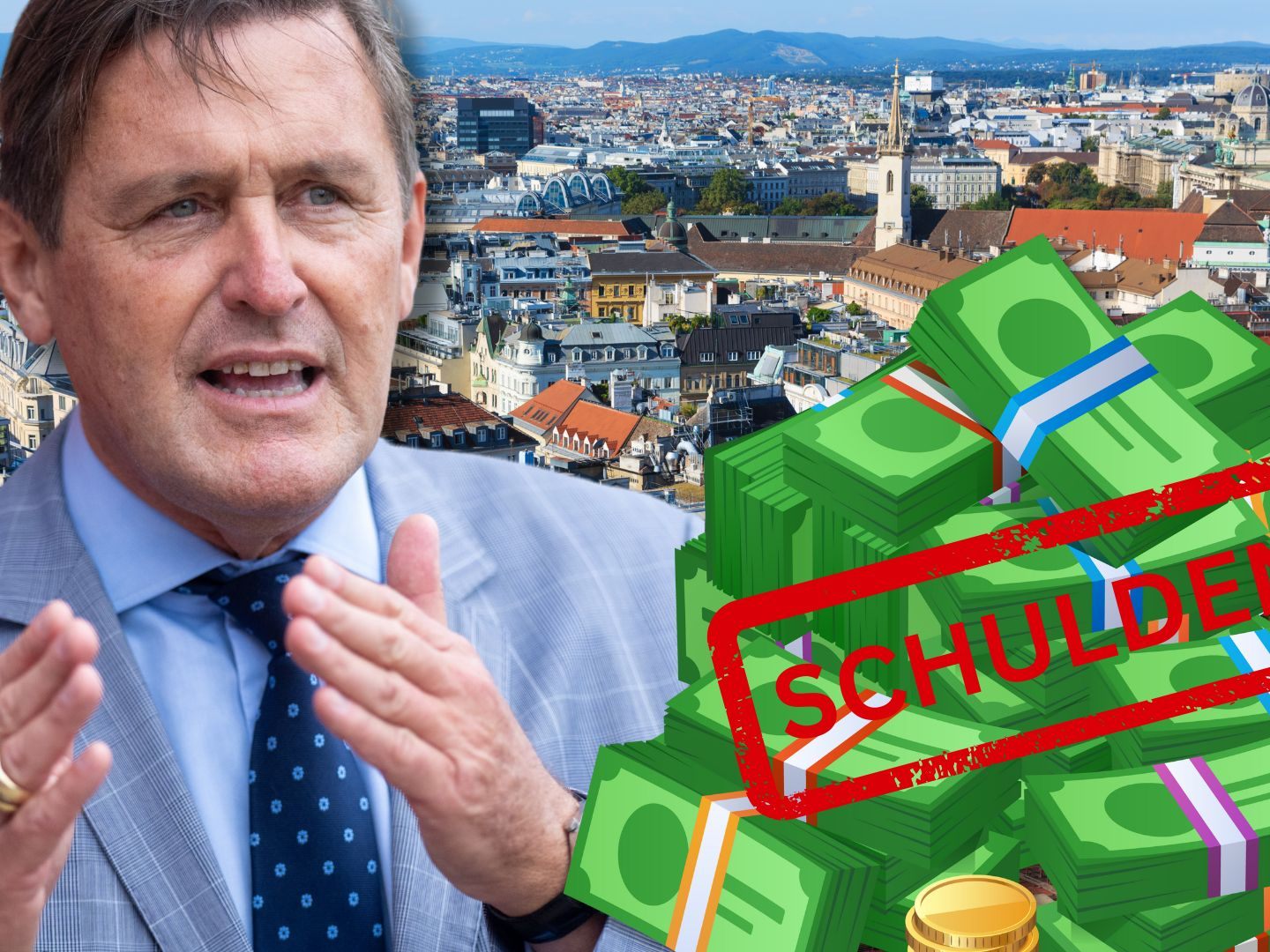Vienna's Debt Mountain Continues to Grow in 2025: This is How They Plan to Save

The Viennese deficit will be lower than expected in 2024. The preliminary estimate was 2.2 billion euros, but now initial calculations show: The budget deficit will amount to around 1.7 billion euros. This was reported by Finance City Councillor Peter Hanke (SPÖ) in an interview with the APA. However, as expected, the figures for this year are less rosy. In 2025, the deficit will exceed the forecast. Hanke is now planning a consolidation, including internal savings measures.
Vienna's Deficit 2024 Better, 2025 Worse Than Expected
"The financial situation is good and stable," the city councillor assured in general. Moreover, for the seventh consecutive year, the results are better than the preliminary estimate. According to Hanke, the fact that last year's deficit was almost 500 million euros less is due to several factors. For instance, more revenue from the municipal tax was collected. This development was partly due to record employment, he explained.
Additionally, it was possible to spend around 300 million less on the municipal utilities in 2024. According to the department head, a tighter control system for major projects has had a positive impact there. Savings in the magistrate and a better financial result also contributed to the "satisfactory" outcome.
Vienna Currently with 11.9 Billion Euros in Debt
Currently, the city's debt level is 11.9 billion euros. However, it is likely to continue growing, because: In 2025, the deficit will probably not be lower, but higher. The forecast has been revised from 2.3 billion euros to 3.8 billion euros. Hanke hinted at this a few weeks ago. Little has changed in this assessment for the time being.
Financial Equalization to Be Renegotiated
However, he emphasized that the figure represents a "worst-case scenario." He cited a significant decline in the federal revenue shares as the main cause. Accordingly, around 420 million euros less will flow into the city treasury. Hanke advocated, among other things, for renegotiating the financial equalization to counteract this. He also stated that federal-state talks are necessary regarding the EU Stability Pact.
But savings are also to be made at the town hall. The finance chief aims to generate up to 500 million euros here as part of a joint project with the business groups. Details are not yet available. However, Hanke assured: "The scope and quality of services will not be compromised." Instead, efficiency measures in the administrative apparatus are to be implemented, for example, through the use of AI solutions.
Hanke Assures: 365-Euro Annual Ticket Remains
There will also be no extraordinary increases in fees. Steps in this area are regulated by the valorization law, Hanke emphasized. He further assured: "The 365-euro annual ticket will also remain." At the same time, further investments are planned. There should also be positive budget effects from labor market measures.
The Vienna finance councilor also outlined a longer-term consolidation path. By 2030, the aim is to achieve a balanced budget again. This should be realized without severe cuts for the population and location, he noted.
Opposition Criticism of Vienna's "Debt Swamp"
The Vienna ÖVP expressed annoyance in a reaction over "vague statements." "Councilor Hanke once again presents figures that are primarily one thing: not very meaningful and highly questionable," finance spokesman Manfred Juraczka stated. The fact that the deficit for 2024 is 500 million euros lower than budgeted is not due to structural savings, but mainly to the dissolution of reserves and unexpected additional income from state and municipal taxes. Concrete consolidation measures, on the other hand, are lacking.
Green Party leaders Judith Pühringer and budget spokesman Martin Margulies were astonished. Hanke speaks of a stable budget, although the city of Vienna will have a deficit of 4 billion euros next year: "Hanke is sugarcoating the budget." By 2030, the debt level is expected to be between 25 and 30 billion euros. With an annual interest burden of up to one billion, Vienna faces an enormous financial burden, the Greens warned.
FPÖ leader Dominik Nepp also saw a financial time bomb in the "supposedly good and stable financial situation." "The city of Vienna has developed into a debt swamp under red mismanagement, which will sooner or later lead to disaster," he was convinced. The fact that the deficit for 2024 is lower is the result of "sleight of hand tricks," with Nepp also citing the dissolution of reserves.
(The interview was conducted by Gerald Mackinger/APA)
This article has been automatically translated, read the original article here.





